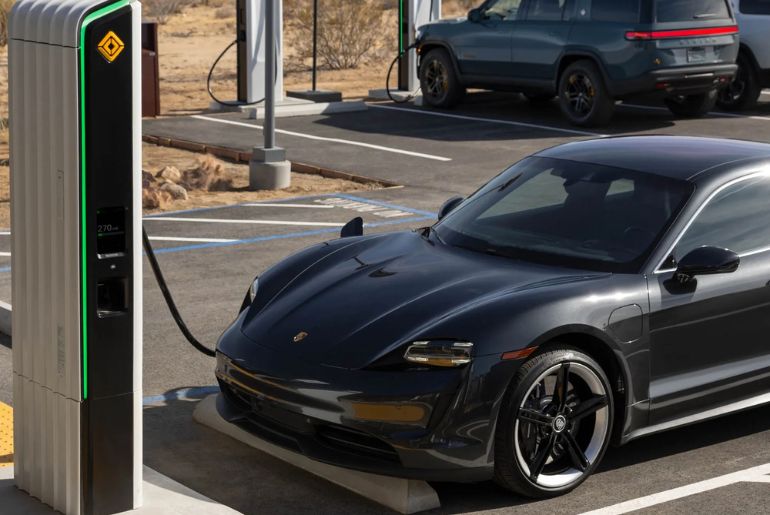Tesla-style cables are being added to Rivian’s DC fast chargers nationwide. Rivian is the manufacturer of the all-electric R1S SUV and R1T truck. Two stations have already been retrofitted by the Rivian Adventure Network, the company’s charging network, and more are on the way.
After the California-based startup announced that it would allow other EVs to use its charging network later this year as it implements the North American Charging Standard (NACS) connector, which Tesla designed for its models.
When the Rivian Adventure Network first launched in 2022, it was free and available only to owners of Rivian R1S and R1T. The charging is no longer free, though, and the stalls are being gradually modified to include both NACS and CCS1 connectors.
Recall that the 2026 models, referred to as the Gen2, have an NACS inlet, but the pre-facelift R1S and R1T, known as the Gen1 models, had CCS1 charging connectors. Since Tesla Superchargers, which primarily offer NACS, are compatible with all model years, Gen1 cars require a charging adapter.
Owners of R1S and R1T devices won’t need to worry about adapters thanks to Rivian’s updated DC fast chargers, which come with cords for both. Last week, Joshua Tree National Park saw the launch of the first Rivian fast chargers that were compatible with NACS. CCS1 and NACS chargers will also be available at the Charging Outpost in Southampton, New York, which is scheduled to open on August 7. Later this year, other stations will arrive, including the Yosemite station.
A notification appears if a charging adapter might be required, and the Rivian app displays the most recent details about the kinds of chargers that are available at each station. There are now 12 spaces in the Joshua Tree Charging Outpost, with eight having CCS1 connectors and four having NACS connectors. The station’s PlugShare page states that the maximum charging power is 300 kilowatts.
Rivian had no choice but to switch to stalls with NACS. The future R2 and R3 EVs, which are anticipated to sell in far larger quantities, will also be equipped with an NACS port from the factory in addition to the enhanced R1S and R1T. Since many CCS1 DC fast chargers are still in use, they will still be able to utilise them; however, an adaptor is required.

